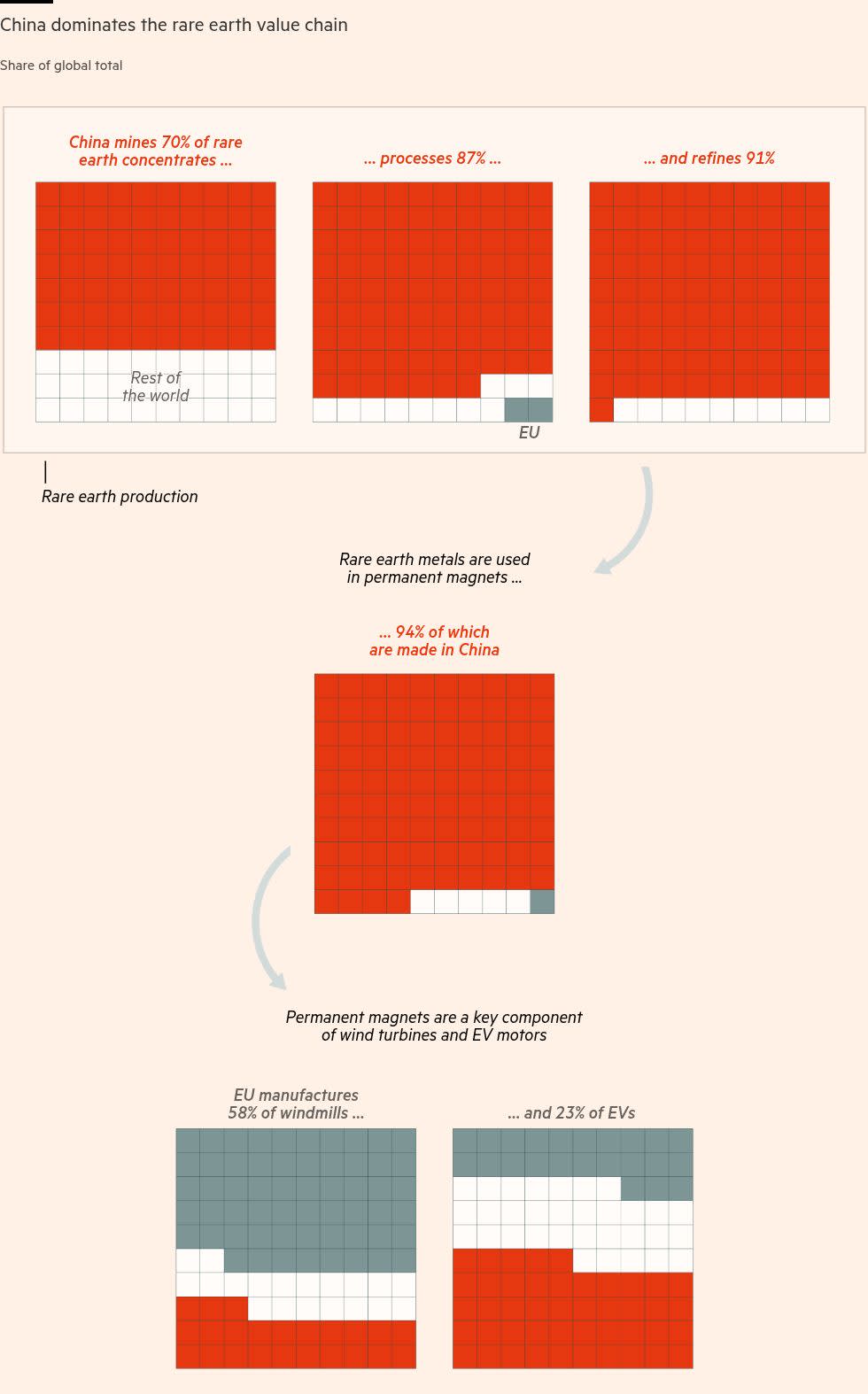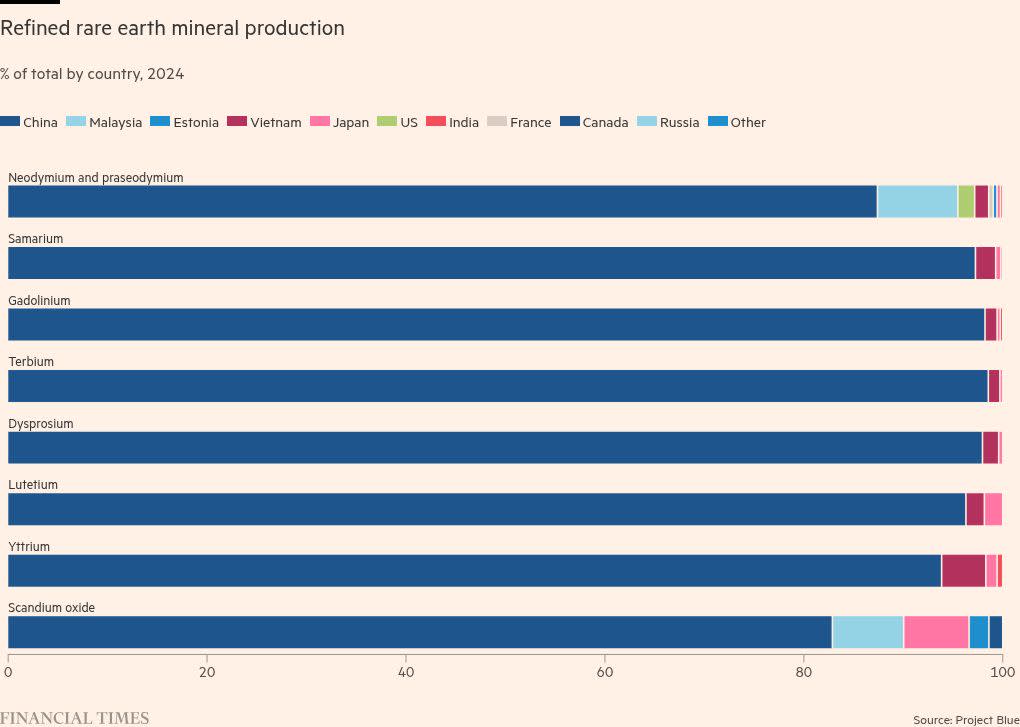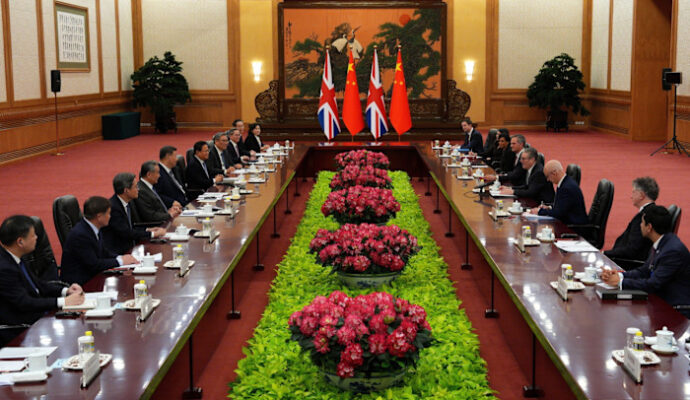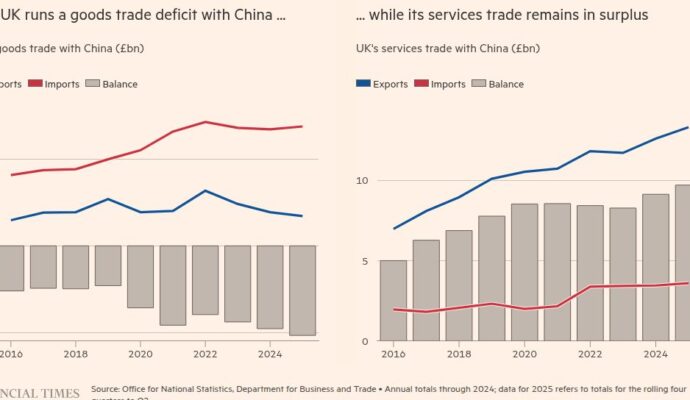Unlock the Editor’s Digest for free
Roula Khalaf, Editor of the FT, selects her favourite stories in this weekly newsletter.
China has begun allowing some shipments of rare earths under new export control rules, but the slow pace of approvals threatens disruption to global supply chains, according to industry participants.
Beijing in early April placed export restrictions on seven rare earth elements and permanent magnets that are vital for products ranging from electric vehicles to wind turbines, humanoid robots and fighter jets.
Exporters, China-based industry groups and supply chain experts said that after weeks of delay, Beijing’s commerce ministry had approved some licences for exports to Europe, but at a pace far too slow to meet demand.
“The window to avoid significant damage to production in Europe is rapidly closing,” said Wolfgang Niedermark, an executive board member of the Federation of German Industries, known as BDI.
US manufacturers, including Tesla, Ford and Lockheed Martin, have voiced concern over the new Chinese export controls in recent investor briefings.
One European industry executive in China, who asked not to be named, said current delays were “untenable” for foreign manufacturers.
“What I’m witnessing on the ground is that there is really incompetence; they underestimated what the impact would be and what you would need to prepare at the working level.”
China’s widening of its controls on rare earth exports was a response to sweeping tariffs announced by US President Donald Trump on April 2.
The controls, which require exporters to gain licenses from commerce ministry officials for shipments of the seven targeted rare earths and of permanent magnets that are made from them, highlighted the geopolitical leverage conferred by China’s dominance over global mineral supply.
It is unclear whether China has begun to approve exports to the US since the two economic superpowers agreed a tariff war ceasefire this month.
Yantai Zhenghai Magnetic Material, an exporter based in China’s eastern Shandong Province, said it had received export licences and had “resumed” taking orders from some customers.
Separately, two people familiar with the situation said at least one shipment bound for automaker Volkswagen’s German operations had been approved.
VW said its supply of parts containing rare earths was stable, and that its suppliers had been granted a “limited number of these [export] licenses”.
China’s commerce ministry did not respond to a request for comment.
There are widespread fears in industry that China’s licensing bureaucracy will be overwhelmed as the number of applications mount.
European companies were “not sure how to prove” their shipments would not be re-exported to the US, which would breach the licensing conditions, the European executive said.
Elon Musk, the Tesla boss, told investors last month that China had sought assurances that rare earth magnets his company needed for robot arms would not be used for military purposes. “That is an example of a challenge there. I’m confident we’ll overcome these issues,” he said.
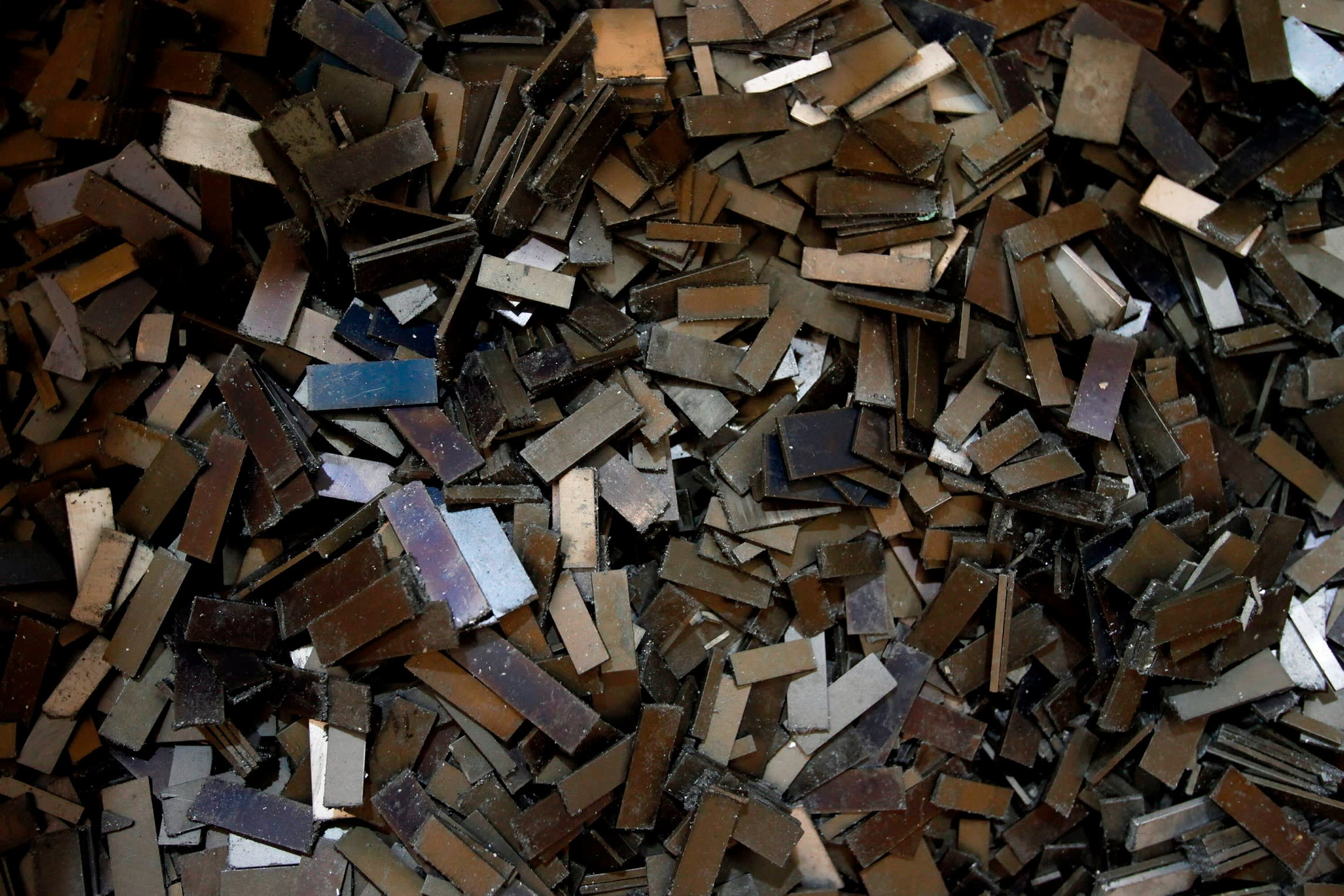
Rajesh Jejurikar, chief executive of Indian conglomerate Mahindra & Mahindra’s auto unit, said the process for obtaining end-use certification — intended to guarantee supplies are not used for weaponry — “is not clear at the moment”.
A manager at Chengdu Galaxy Magnets, which sells permanent magnets, said halting military-related shipments was a concern for Chinese authorities. She said her company was helping customers submit statements to authorities for export approval, but “military-related” applications were not permitted.
“Exports for non-military applications might still be allowed,” she said, asking not to be named.
Permanent magnets are used in fighter aircraft such as Lockheed’s F-35, and the new controls are expected to cause short-term problems and force long-term supply chain shifts.
Lockheed’s chief financial officer, Evan Scott, told investors this week the company had enough rare earth material for the year and he expected US authorities to prioritise supplying Lockheed “given the importance of our programmes”.
Cameron Johnson, a manufacturing and supply chain expert and partner at Tidalwave Solutions in Shanghai, said he believed some large companies with long-standing ties to China had been allowed to access rare earths from the country before their license applications were approved. “There is still material going out.”
Cory Combs, associate director at the Beijing-based consultancy Trivium China, said there was “certainly no evidence” that China had “bluntly cut everyone off”.
Given the temporary 90-day US-China tariff ceasefire, Combs said he expected the ministry of commerce to grant more approvals but warned that uncertainty remained. “Everyone wants Mofcom to provide clarity. But China’s strategic leverage relies partly on the ability to pull the export control lever to the extent that the US does not provide a satisfying deal.”
Experts said the latest rare earths controls would add impetus to western efforts to reduce their dependence on China.
